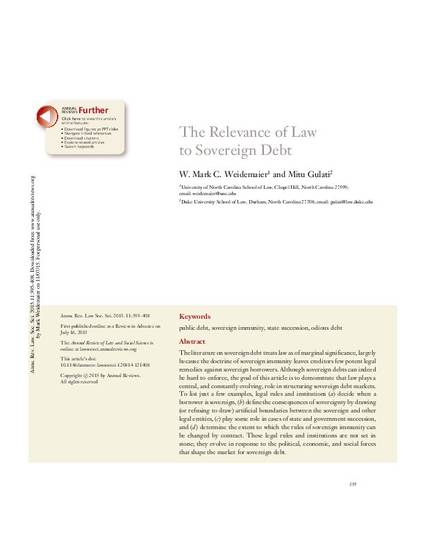
Article
The Relevance of Law to Sovereign Debt
Annual Review of Law and Social Science
(2016)
Abstract
The literature on sovereign debt treats law as of marginal significance, largely because the doctrine of sovereign immunity leaves creditors few potent legal remedies against sovereign borrowers. Although sovereign debts can indeed be hard to enforce, the goal of this article is to demonstrate that law plays a central, and constantly evolving, role in structuring sovereign debt markets. To list just a few examples, legal rules and institutions (a) decide when a borrower is sovereign, (b) define the consequences of sovereignty by drawing (or refusing to draw) artificial boundaries between the sovereign and other legal entities, (c) play some role in cases of state and government succession, and (d ) determine the extent to which the rules of sovereign immunity can be changed by contract. These legal rules and institutions are not set in stone; they evolve in response to the political, economic, and social forces that shape the market for sovereign debt.
Keywords
- sovereign debt
Disciplines
Publication Date
2016
Citation Information
W. Mark C. Weidemaier and Mitu Gulati. "The Relevance of Law to Sovereign Debt" Annual Review of Law and Social Science (2016) Available at: http://works.bepress.com/mark_weidemaier/20/
